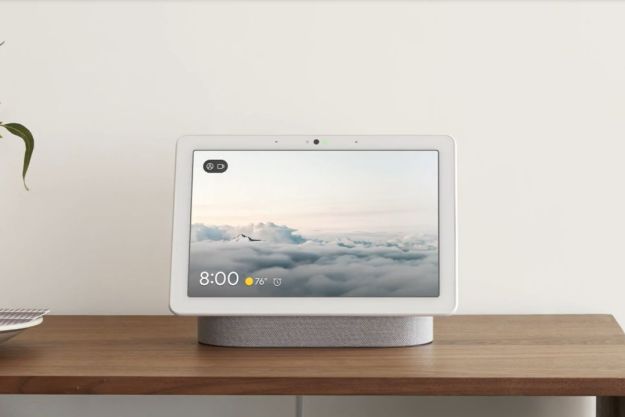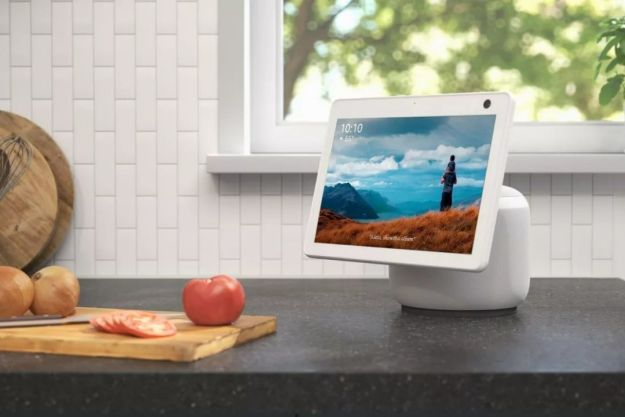In a flurry of announcements at its event in Seattle today, Amazon dropped news of never-before-seen Echo products. One of these is the Echo Flex, a small speaker that can be used to spread Alexa throughout your home and to plug in other accessories. It takes up only a single power outlet, so it won’t dominate the space it’s placed in. The Echo Flex is available for pre-order today and is slated to retail for $25, while its accessories will retail for $15 each.
The Echo Flex does have a speaker, but it’s too small and tinny to be suitable for music. On the other hand, the speaker is perfect for Alexa’s voice. The first two accessories Amazon announced are a motion sensor and a smart night-light that can be placed in the hallway, bathroom, or elsewhere.

The Echo Flex is part hardware, part software. It has a small USB port that can be used to plug in accessories, but it can also be used to charge mobile devices do you aren’t using up valuable outlet space.
The motion sensor suggests that the Echo Flex can be used to trigger other actions in connected devices, perhaps through IFTTT or through some of the Alexa Skills. Amazon said it will be sharing the specs for the accessories in hopes that other developers will build products designed to work with the Echo Flex. While no other products have been announced yet, it’s safe to say that Amazon has plans to expand its smart home line well beyond what is currently offered.
The main appeal of the Echo Flex is the low price point. It’s less expensive than the Echo Dot on sale, and while it does lack a great speaker (which is one of Amazon’s primary selling points), for someone that is just looking for smart home control at a low cost, it’s a great solution. As more details emerge about the various accessories and what they can be used for, the Echo Flex will attract much more attention.
If you’d like to see everything Amazon announced today, check out our full roundup of all new devices.
Editors' Recommendations
- What to do if your Amazon Alexa app is not working
- Echo Hub vs. Echo Show 15: Which is the best smart home gadget?
- Echo Hub vs. Echo Show 8: Which is the best option for your smart home?
- Echo Show 8 vs. Echo Show 10: is the bigger device a better smart display?
- Echo Show 8 vs. Nest Hub: Does Amazon or Google offer the best smart display?




